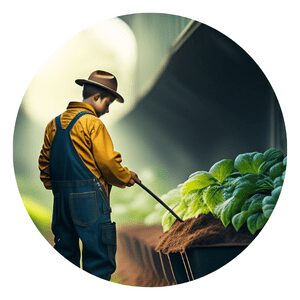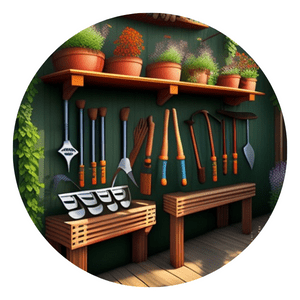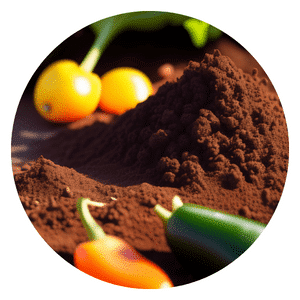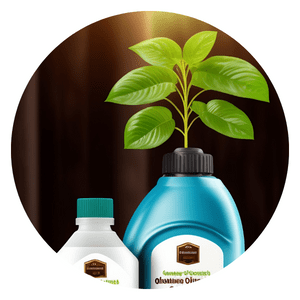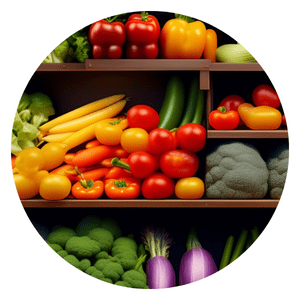Living an Organic Lifestyle
In recent years, there has been a growing movement towards living an organic lifestyle.
With concerns about the long-term effects of chemicals and pesticides on our health and the environment, many individuals are making conscious choices to embrace natural and sustainable practices in every aspect of their lives.
From the food we eat to the products we use on our bodies, adopting an organic lifestyle is not just a trend but a philosophy that emphasizes the importance of living in harmony with nature.
Living organically goes beyond simply choosing to consume organic foods; it encompasses an entire way of life that prioritizes wellness, sustainability, and environmental stewardship.
Organic Lifestyle Menu
Organic Food
Choosing organic fruits, vegetables, meats, and dairy products is an essential aspect of living an organic lifestyle.
Organic food refers to produce that is grown without the use of synthetic pesticides or fertilizers. This means that farmers rely on natural methods to control pests and enrich the soil, resulting in a healthier and more sustainable product.
Additionally, opting for organic foods ensures that you are avoiding genetically modified organisms (GMOs).
GMOs are organisms whose genetic material has been altered in a laboratory through genetic engineering techniques.
Many studies have raised concerns about the potential health effects of consuming GMOs, making it crucial to select organic products if you wish to avoid them.
To ensure that your food meets these standards, look for the USDA organic label. This certification guarantees that the product has met specific criteria regarding its production process and ingredients.
By choosing organic foods, you are not only prioritizing your health but also supporting sustainable farming practices that protect the environment for future generations.
Sustainable Farming
Supporting local farmers who use organic and sustainable farming practices is an essential aspect of living an organic lifestyle.
By choosing to buy produce from these farmers, we not only ensure that we are consuming fresh and healthy food, but also contribute to the preservation of our environment.
Local farmers who practice sustainable farming methods prioritize soil health, biodiversity, and water conservation, all of which are crucial for maintaining a balanced ecosystem.
One way to access fresh and organic products is by visiting farmers’ markets. These markets provide a direct connection between consumers and local farmers, allowing us to learn more about their cultivation methods and the journey our food takes from farm to table.
Furthermore, buying from these markets supports the local economy and reduces our carbon footprint by minimizing transportation costs associated with long-distance food distribution.
Another great option is joining a community-supported agriculture (CSA) program where individuals or families can purchase shares in a farmer’s harvest.
This membership-based model ensures that you receive regular supplies of seasonal fruits, vegetables, herbs, or even dairy products throughout the year directly from your chosen farm or cooperative.
CSA programs foster a sense of community as members often have opportunities to visit the farm, participate in workshops on sustainable practices, or even lend a hand during harvest time – creating strong bonds between people committed to supporting local agriculture while enjoying nutritious organic produce at home.
Sustainable Farming
Supporting local farmers who use organic and sustainable farming practices is an essential aspect of living an organic lifestyle.
By choosing to buy produce from these farmers, we not only ensure that we are consuming fresh and healthy food, but also contribute to the preservation of our environment.
Local farmers who practice sustainable farming methods prioritize soil health, biodiversity, and water conservation, all of which are crucial for maintaining a balanced ecosystem.
One way to access fresh and organic products is by visiting farmers’ markets. These markets provide a direct connection between consumers and local farmers, allowing us to learn more about their cultivation methods and the journey our food takes from farm to table.
Furthermore, buying from these markets supports the local economy and reduces our carbon footprint by minimizing transportation costs associated with long-distance food distribution.
Another great option is joining a community-supported agriculture (CSA) program where individuals or families can purchase shares in a farmer’s harvest.
This membership-based model ensures that you receive regular supplies of seasonal fruits, vegetables, herbs, or even dairy products throughout the year directly from your chosen farm or cooperative.
CSA programs foster a sense of community as members often have opportunities to visit the farm, participate in workshops on sustainable practices, or even lend a hand during harvest time – creating strong bonds between people committed to supporting local agriculture while enjoying nutritious organic produce at home.
In fields embraced by gentle rays, Where nature's notes in chorus play, I choose to live an organic way, Harmonious with Earth each day. From sprouting seeds to harvest grand, With soil’s tender touch in hand, Living true to nature’s plan, An organic life, a vibrant stand.
Chappy The Gardener
Chemical-Free Cleaning
One of the main reasons to opt for chemical-free cleaning products is that they are eco-friendly.
Traditional cleaning products often contain harmful chemicals that can negatively impact the environment. These chemicals can leach into water systems, harm aquatic life, and contribute to air pollution when released into the atmosphere.
By using natural ingredients such as vinegar, baking soda, and essential oils for cleaning purposes, you can significantly reduce your environmental footprint.
In addition to being better for the environment, chemical-free cleaning products are also safer for your health.
Many conventional cleaning products contain harsh chemicals and toxins that can irritate the skin, eyes, and respiratory system. They may also release harmful fumes that can be especially dangerous for individuals with allergies or asthma.
By using natural ingredients like vinegar and baking soda, you eliminate these risks and create a healthier living environment for yourself and your family.
Furthermore, opting for chemical-free cleaning aligns with an organic lifestyle. Living organically means choosing products and practices that promote sustainability, healthfulness, and ethical standards.
By embracing chemical-free cleaning methods, you prioritize both your own well-being and the well-being of the planet. This holistic approach allows you to maintain a clean home while staying true to your organic principles.
Non-Toxic Personal Care
Non-toxic personal care is an essential aspect of living an organic lifestyle.
By using organic and natural personal care products, we can reduce our exposure to harmful chemicals commonly found in conventional products.
When it comes to skincare, opting for organic options ensures that our skin is nourished with ingredients derived from nature, free from pesticides and synthetic additives.
These products not only provide effective results but also promote the overall health of our skin.
Similarly, when choosing haircare products, it is crucial to look for organic options that are free from harsh chemicals such as sulfates and parabens.
Organic haircare products help maintain the natural balance of our scalp while providing nourishment to our hair strands without causing any harm or damage.
Furthermore, body care items should also be chosen carefully by prioritizing those made with organic ingredients.These non-toxic alternatives not only cleanse and moisturize the skin effectively but also minimize the risk of absorbing harmful chemicals through the largest organ of our body.
In conclusion, embracing non-toxic personal care by incorporating organic and natural skincare, haircare, and body care items into our daily routine allows us to prioritize both our health and the environment’s well-being.
By selecting products with organic ingredients and avoiding synthetic additives commonly found in conventional options, we can ensure a healthier lifestyle while supporting sustainable practices within the beauty industry.
Eco-Friendly Home
Living an organic lifestyle goes beyond just the food we consume; it extends to all aspects of our daily lives, including the choices we make for our homes.
One way to promote sustainability and reduce waste is by opting for environmentally friendly alternatives for household items.
Instead of using single-use plastic bags, investing in reusable cloth bags can significantly decrease plastic waste.
Similarly, choosing reusable water bottles and containers instead of disposable ones can help cut down on unnecessary packaging waste.
Another crucial aspect of creating an eco-friendly home is incorporating energy-efficient appliances and practices.
By replacing old appliances with energy-efficient models, such as Energy Star-rated options, you not only reduce your carbon footprint but also save on electricity bills in the long run.
Additionally, simple practices like turning off lights when not in use or using natural lighting during the day can make a significant difference in reducing energy consumption.
Overall, making conscious choices about household items and implementing energy-efficient practices are essential steps towards living an organic lifestyle that promotes sustainability and reduces waste.
By reducing our reliance on single-use products and embracing environmentally friendly alternatives, we contribute to a healthier planet for ourselves and future generations.
Organic Gardening
Organic gardening is a sustainable and eco-friendly approach to growing herbs, vegetables, and fruits.
By choosing to grow our own organic produce, we can ensure that we are consuming food that is free from harmful chemicals and pesticides.
One of the key aspects of organic gardening is the use of organic compost, which enriches the soil with essential nutrients and microorganisms necessary for plant growth.
In addition to using organic compost, natural pest control methods play a vital role in maintaining a healthy garden ecosystem.
Instead of relying on chemical pesticides that can harm beneficial insects and disrupt the balance of nature, organic gardeners can use techniques such as companion planting and attracting beneficial insects like ladybugs or lacewings to keep pests at bay naturally.
Furthermore, embracing heirloom seeds in our organic gardens promotes biodiversity and preserves traditional varieties that may otherwise be lost.
These seeds have been passed down through generations without genetic modifications or alterations, ensuring the preservation of unique qualities and flavors in our homegrown produce.
By growing our own organic herbs, vegetables, and fruits using these practices, we not only contribute to environmental sustainability but also enjoy the satisfaction of knowing exactly what goes into our food.
Mindful Consumption
When it comes to living an organic lifestyle, mindful consumption plays a crucial role in ensuring that the products we buy align with our values and have a minimal impact on the environment.
One aspect of mindful consumption is considering the packaging of the products we purchase.
Opting for items that use minimal packaging or are packaged using eco-friendly materials can significantly reduce waste and contribute to a more sustainable future.
Another important factor to consider is fair trade certifications.
By choosing products with fair trade certifications, such as coffee, chocolate, or clothing, we can support workers who are paid fairly and work under safe conditions. This not only promotes social justice but also encourages sustainable farming practices that protect the environment.
Furthermore, ethical sourcing should be taken into account when making purchasing decisions.
Ethical sourcing ensures that products are produced under humane working conditions without exploiting labor or harming communities.
By choosing items that prioritize ethical sourcing, we can contribute to creating a more equitable world while minimizing the negative environmental impacts associated with unethical practices.
Living an organic lifestyle goes beyond just consuming organic food; it also involves being conscious of our purchasing choices and their impact on the environment.
Mindful consumption encompasses factors such as packaging waste reduction, fair trade certifications, and ethical sourcing practices.
By being informed about these aspects and making intentional choices, we can actively contribute to a more sustainable future while supporting socially responsible businesses.
Connection with Nature
Living an organic lifestyle is not just about the food we eat or the products we use.
It’s also about our connection with nature and how we interact with the environment around us.
Spending time in nature allows us to appreciate its beauty, which in turn helps us develop a deeper connection with the natural world.
Engaging in activities like hiking can be incredibly rejuvenating for both our physical and mental well-being.
Being surrounded by lush greenery, fresh air, and breathtaking views can have a profound impact on our overall mood and outlook on life.
It allows us to disconnect from the hustle and bustle of daily life, providing us with a much-needed respite.
In addition to hiking, gardening is another wonderful way to connect with nature.
Working in the soil, planting seeds, nurturing plants, and witnessing their growth firsthand creates a sense of fulfillment that is hard to replicate elsewhere.
Gardening not only provides an opportunity for physical activity but also helps us understand the intricate workings of nature as we witness how plants thrive under proper care.
Simply enjoying outdoor spaces is equally important in developing a deeper connection with nature.
Whether it’s sitting under a tree reading a book or having a picnic at your local park, immersing ourselves in natural surroundings has proven benefits for our mental health and overall well-being.
By spending time in nature, appreciating its beauty, and engaging in activities like hiking or gardening, we can foster a stronger bond with the environment around us.
Reduce, Reuse, Recycle
One of the key principles of living an organic lifestyle is to reduce, reuse, and recycle.
By embracing the principles of the 3Rs, we can minimize waste generation and contribute to a more sustainable future.
The first step is to reduce consumption by being mindful of what we purchase and only buying what we truly need. This not only helps to conserve resources but also reduces the amount of waste that ends up in landfills.
Next, reusing items whenever possible is another important aspect of living organically. Instead of throwing away or buying new items, we can find creative ways to repurpose or repair them.
For example, old jars can be used for storage purposes or turned into homemade candles.
By giving these items a second life, we are not only reducing waste but also saving money in the process.
Lastly, recycling materials plays a crucial role in contributing to a circular economy.
Many materials such as paper, glass, plastic, and metal can be recycled and made into new products instead of being disposed of in landfills.
Recycling helps conserve natural resources, reduces energy consumption and greenhouse gas emissions associated with manufacturing new materials.
By following these principles and incorporating them into our daily lives as part of living an organic lifestyle, we can make a positive impact on the environment while creating a more sustainable future for generations to come.
Conscious Clothing
Conscious clothing is an essential component of living an organic lifestyle.
By choosing garments made from natural fibers like organic cotton, hemp, or bamboo, individuals can minimize their environmental footprint and support sustainable farming practices.
Organic cotton, for instance, is grown without the use of harmful pesticides or synthetic fertilizers, which reduces water pollution and promotes biodiversity.
Hemp fabric is renowned for its durability and breathability while being naturally resistant to pests, eliminating the need for pesticides during cultivation. Bamboo clothing offers similar benefits as it grows quickly without the need for excessive water or chemical inputs.
In addition to selecting natural fibers, supporting ethical fashion brands that prioritize fair labor practices and eco-friendly production methods is crucial.
Many well-known fashion brands have been exposed for exploiting workers in sweatshops where wages are low and working conditions are hazardous.
By seeking out ethical fashion brands that ensure fair wages and safe working environments for their employees, consumers can contribute to positive change within the industry.
Furthermore, eco-conscious brands often utilize renewable energy sources in their manufacturing processes and employ innovative techniques such as recycling or upcycling materials to reduce waste generation.
Overall, conscious clothing made from natural fibers combined with supporting ethical fashion brands aligns with an organic lifestyle by promoting sustainability and social responsibility within the fashion industry.
Renewable Energy
Living an organic lifestyle goes hand in hand with embracing renewable energy options for your home.
By installing solar panels or wind turbines, you can significantly reduce your reliance on fossil fuels and decrease your carbon footprint.
Solar panels harness the power of the sun to generate electricity, providing a clean and sustainable energy source for your household.
Not only do they help you save money on utility bills in the long run, but they also contribute to a healthier environment by reducing greenhouse gas emissions.
Similarly, wind turbines are another great option for renewable energy. They convert wind power into electricity, offering a reliable and consistent source of clean energy.
By utilizing wind turbines, you can tap into nature’s abundant resources while making a positive impact on the planet.
Both solar panels and wind turbines are effective ways to produce green energy at home and contribute to a more sustainable future.
Overall, exploring renewable energy options like solar panels or wind turbines is crucial for those who aim to live an organic lifestyle. These technologies not only help reduce reliance on fossil fuels but also play a significant role in minimizing our carbon footprint.
By investing in renewable sources of energy, we can create a greener world and ensure a better future for generations to come.
Education and Advocacy
Education and advocacy are crucial components of living an organic lifestyle.
By staying informed about organic practices, individuals can make informed choices about the food they consume and the products they use.
Learning about organic farming methods, such as crop rotation and composting, helps people understand the benefits of choosing organic products.
Additionally, being aware of environmental issues allows individuals to take action to protect our planet.
From understanding the impact of pesticides on ecosystems to learning about renewable energy sources, education empowers individuals to make sustainable choices that minimize their carbon footprint.
Sharing knowledge with others is another important aspect of education and advocacy.
By spreading awareness about the benefits of organic practices and sustainable living, we can inspire others to make changes in their own lives.
Whether it’s through social media posts or hosting educational events, sharing information encourages a collective effort towards a healthier planet.
Supporting organizations that promote organic agriculture and environmental conservation is also vital for creating lasting change.
By donating time or resources to these organizations, individuals can contribute directly to education and advocacy efforts.
Together, by staying informed and actively supporting these causes, we can create a more sustainable future for generations to come.
In conclusion, living an organic lifestyle offers numerous benefits for individuals and the planet as a whole.
By choosing to consume organic food, we can reduce our exposure to harmful chemicals and pesticides, protecting our health and well-being.
Additionally, supporting organic farming practices helps preserve biodiversity and soil fertility, contributing to a more sustainable and resilient food system.
Embracing organic beauty and personal care products further minimizes our environmental impact by reducing the release of toxins into waterways.
Overall, adopting an organic lifestyle is a powerful way to prioritize our own health while also taking a stand for the health of the planet.
Start making small changes today by incorporating more organic options into your diet and daily routine – every choice matters!
Click To Grow
Helps Us Grow – Share If You Like


